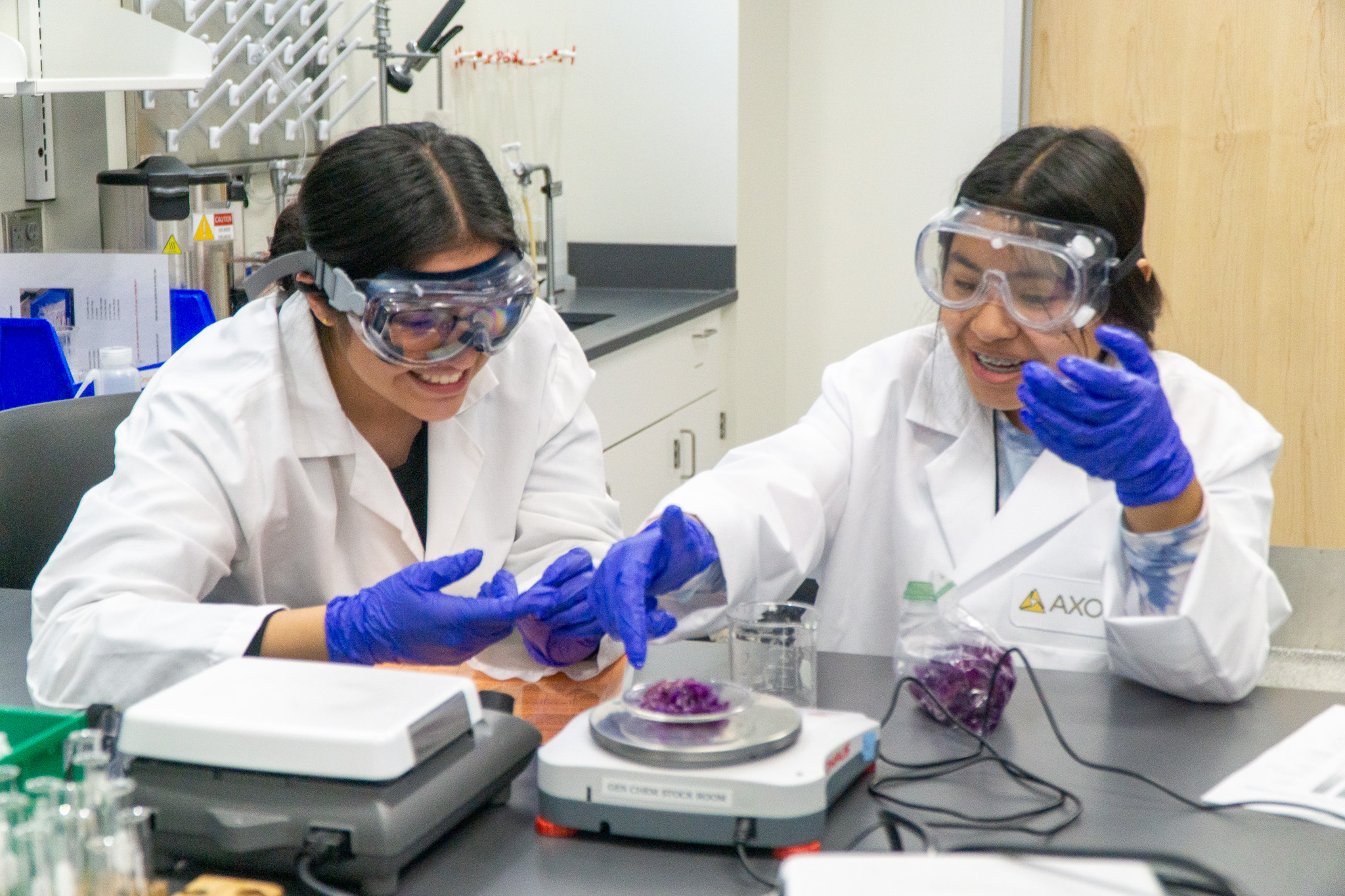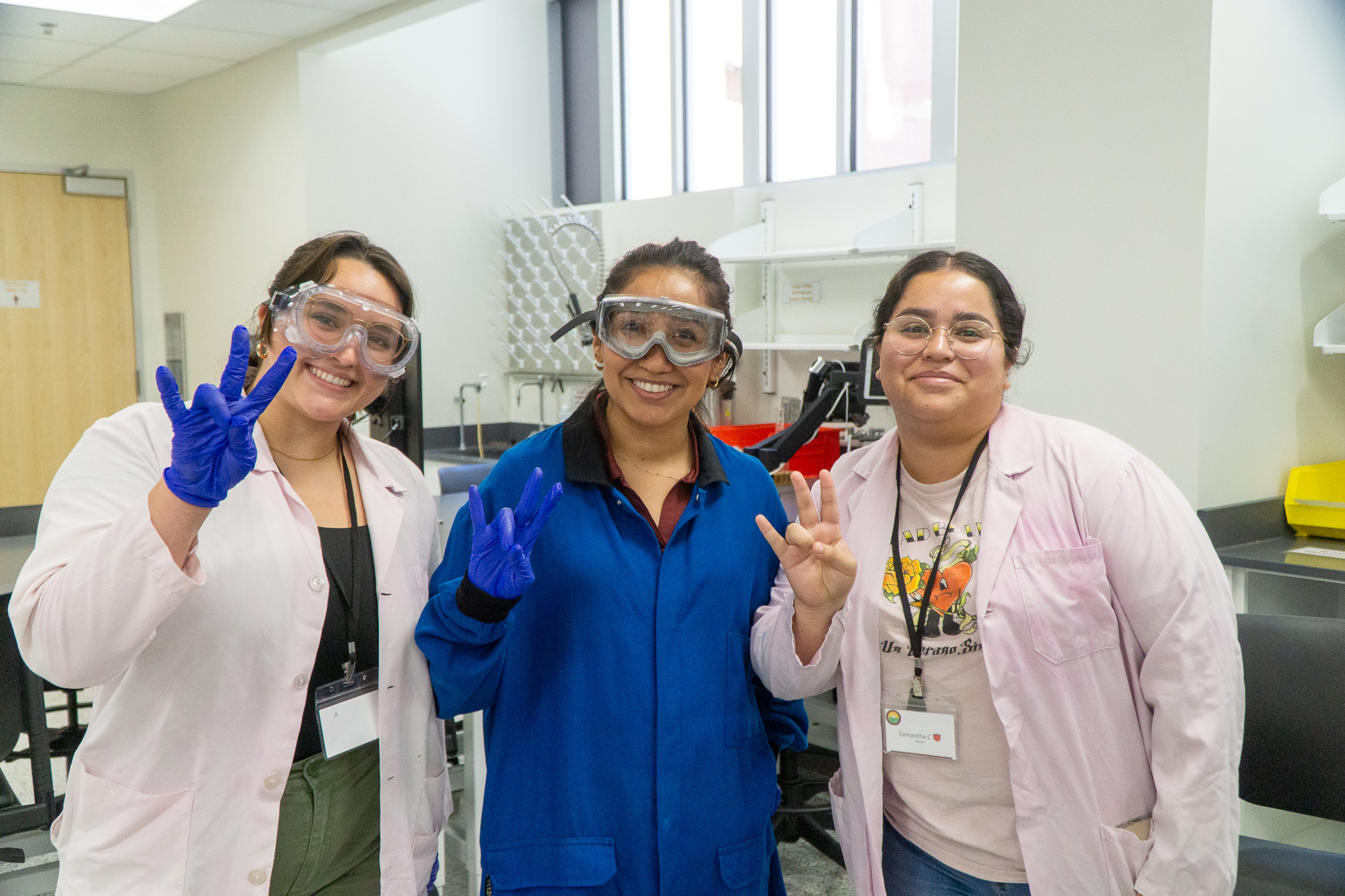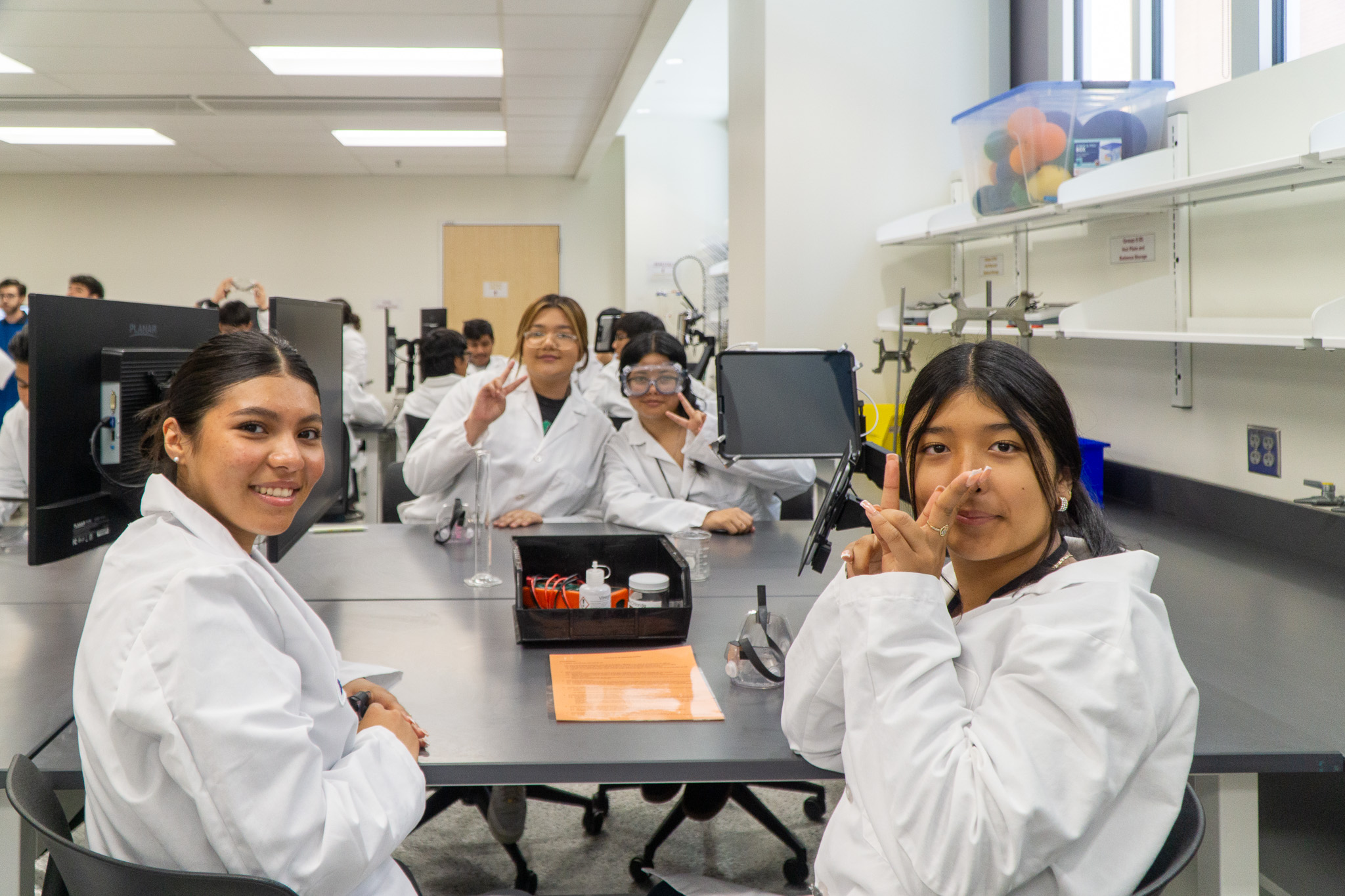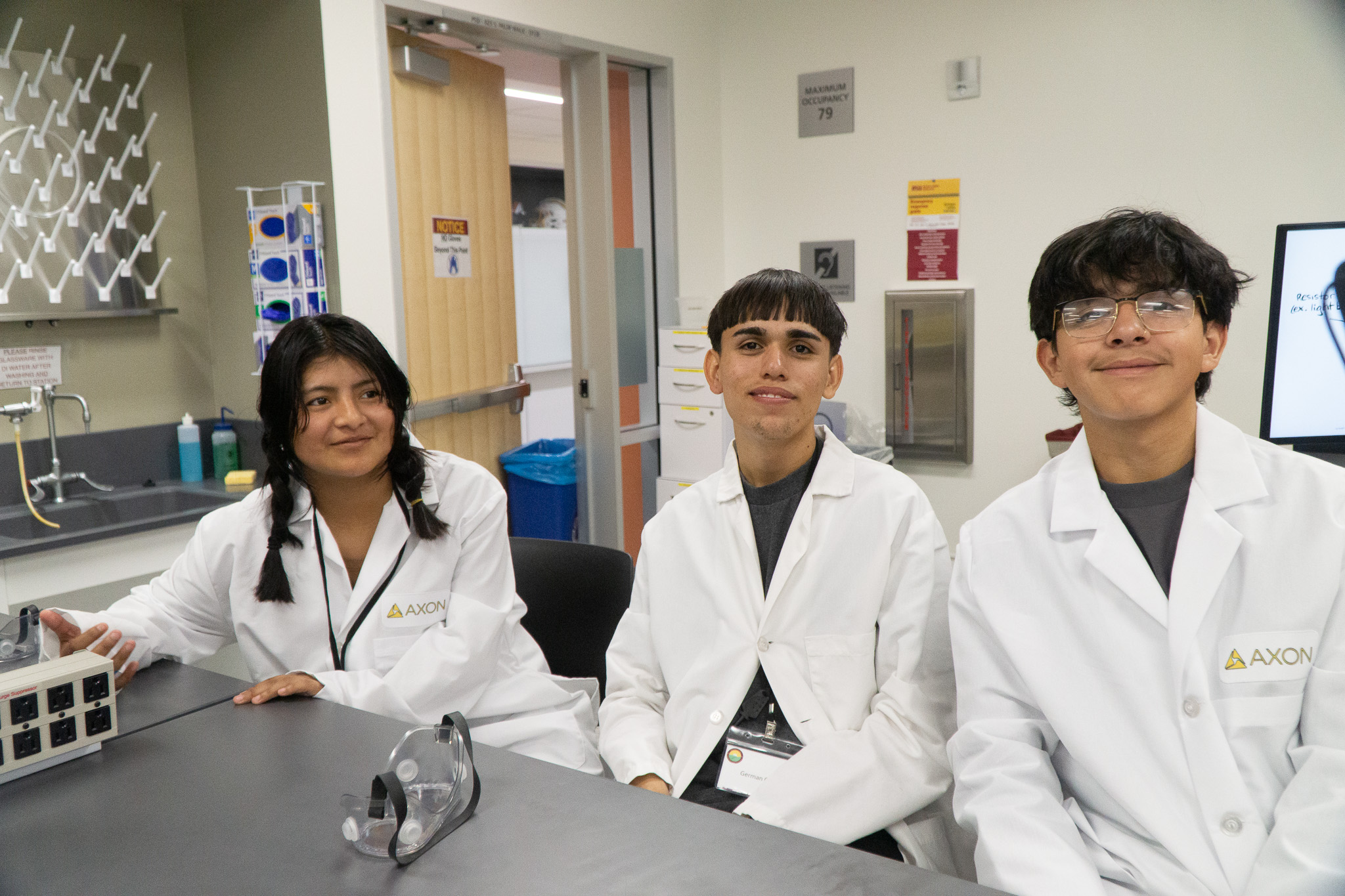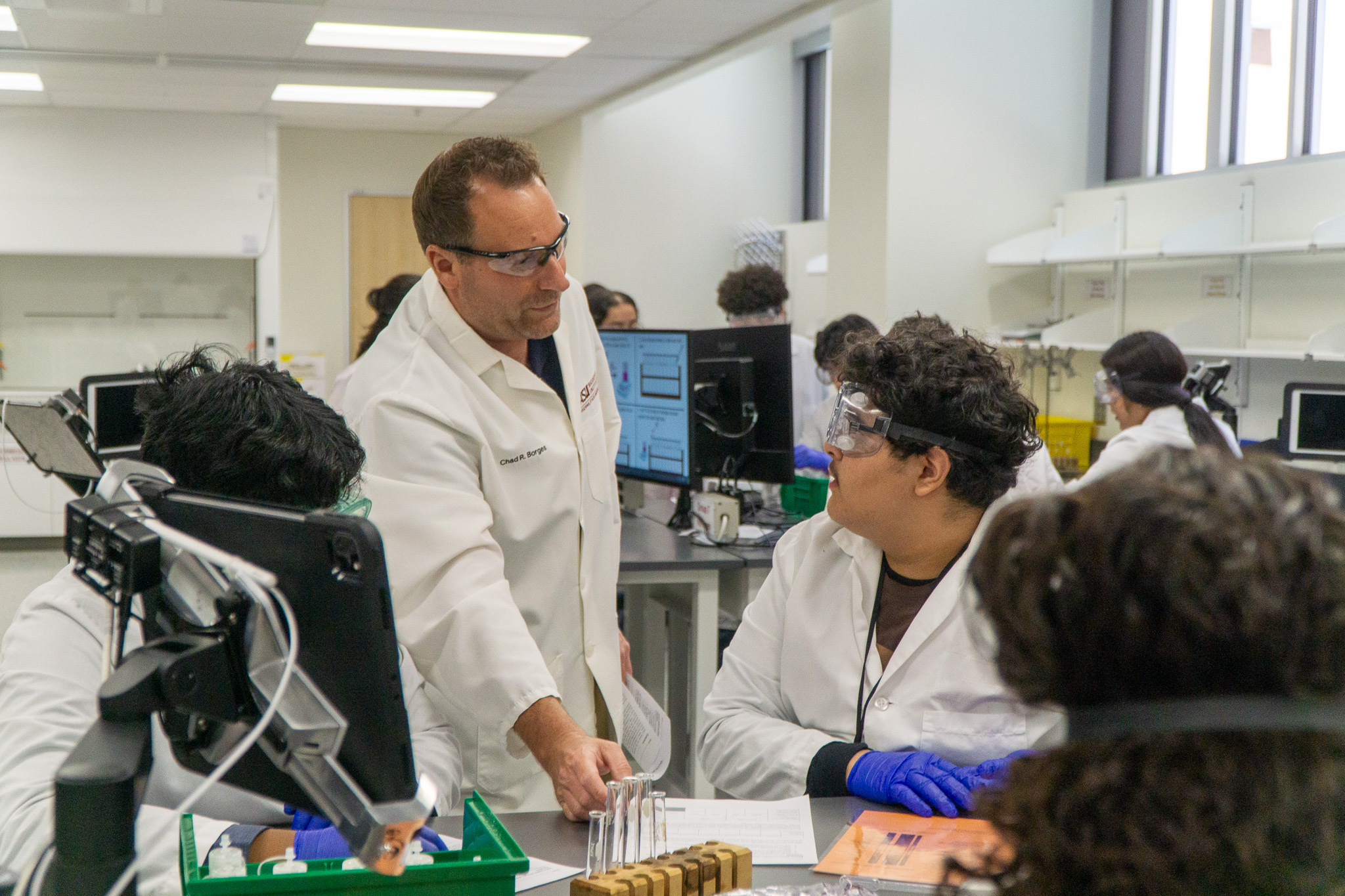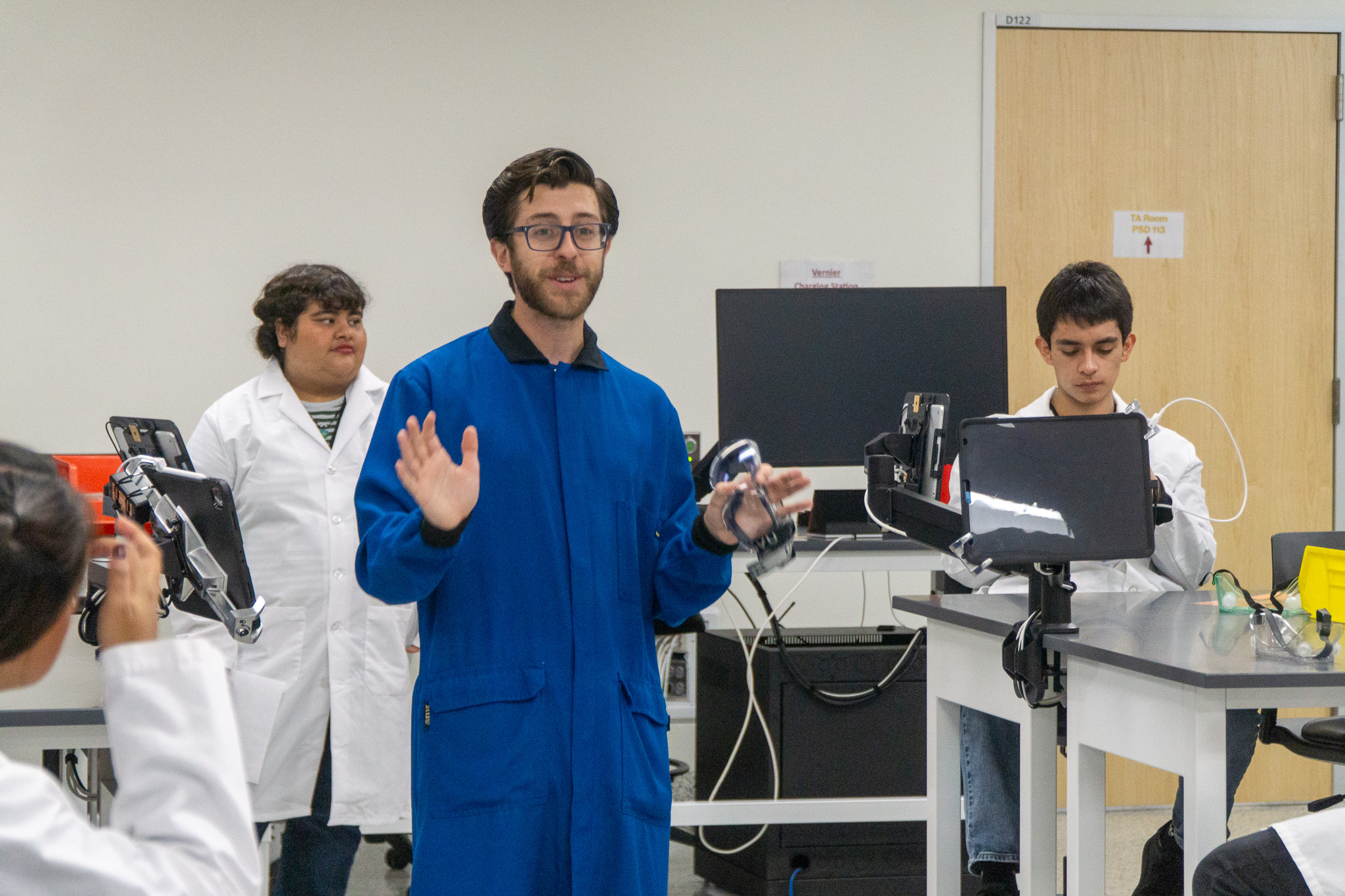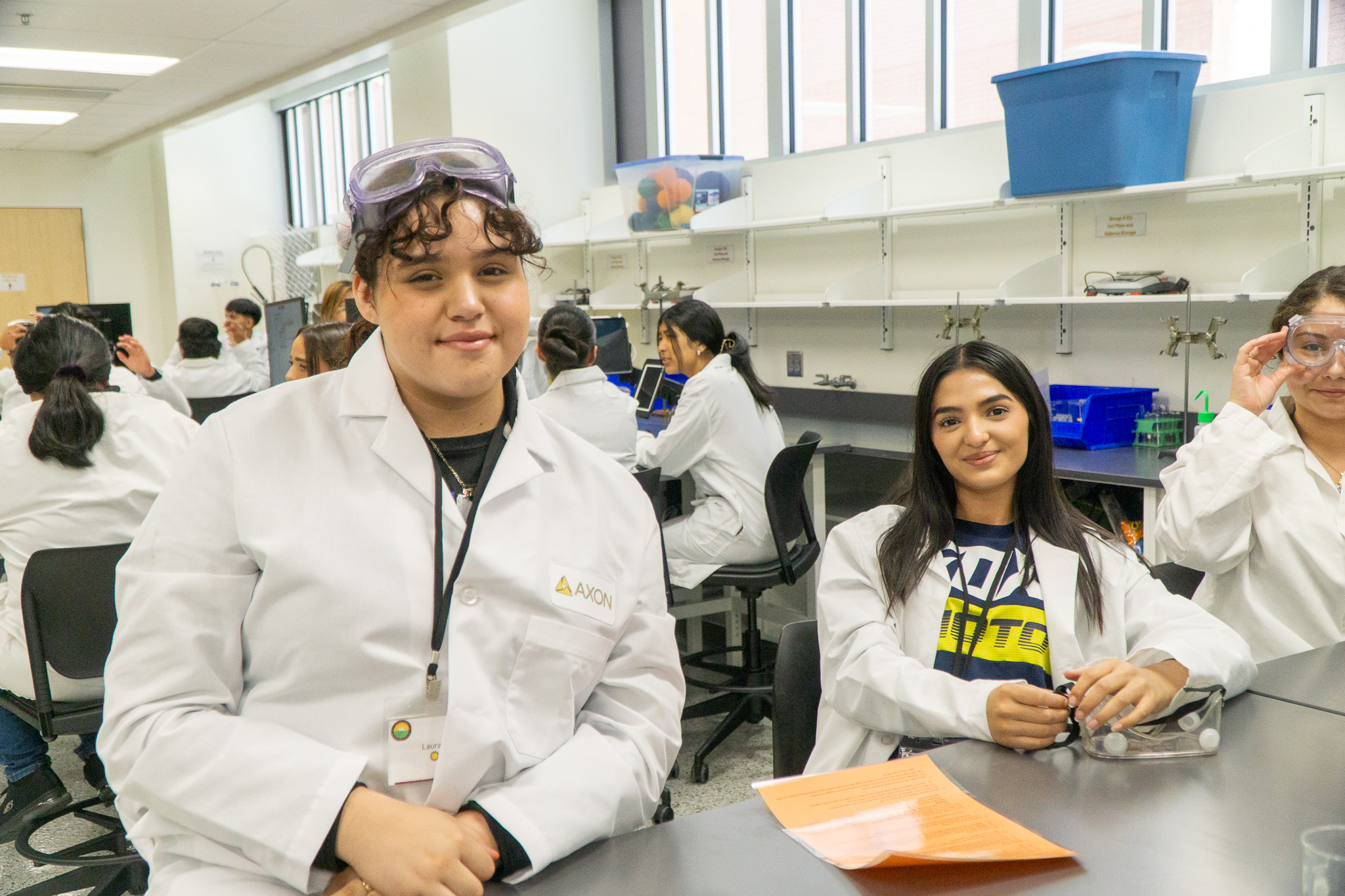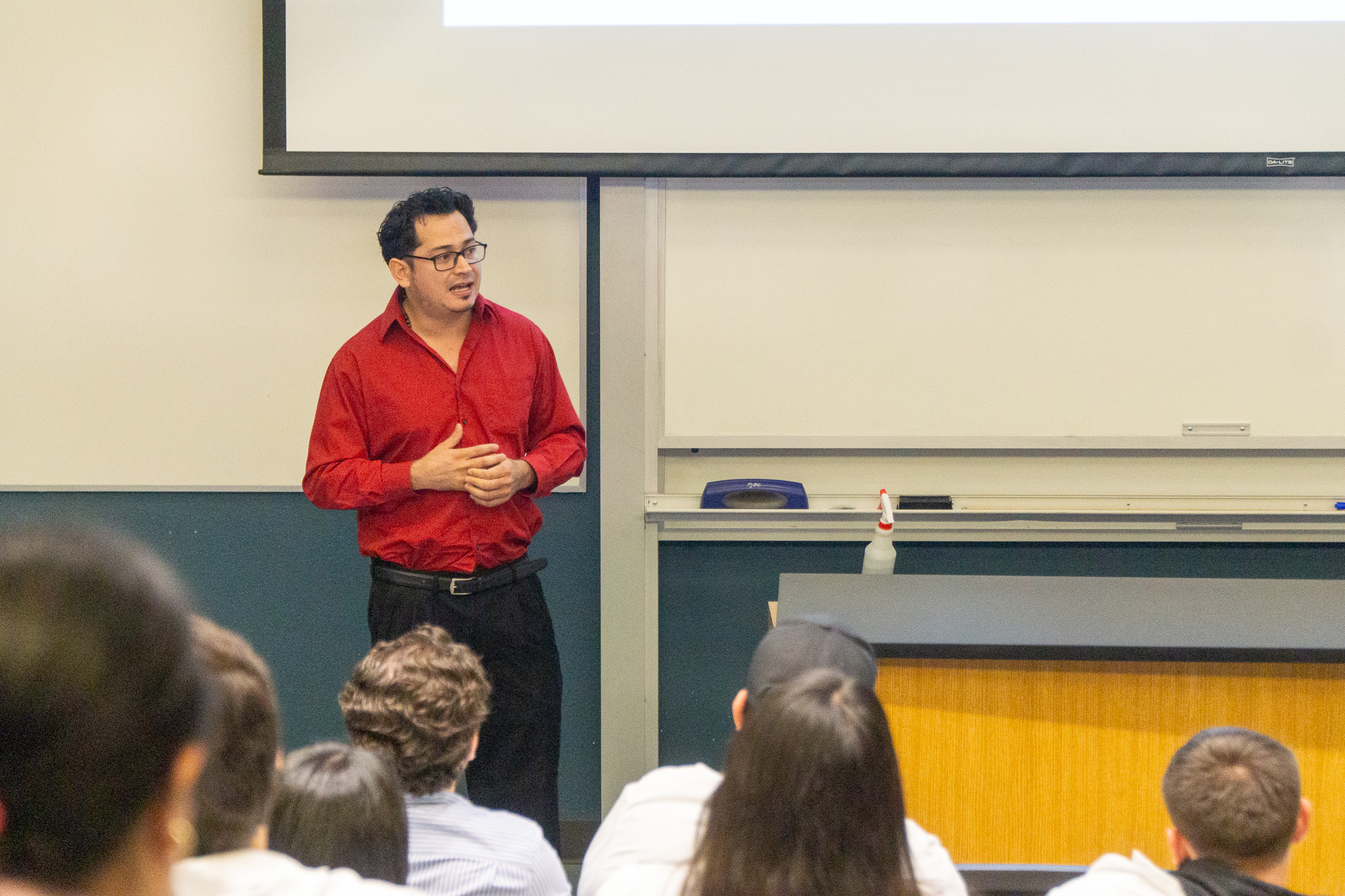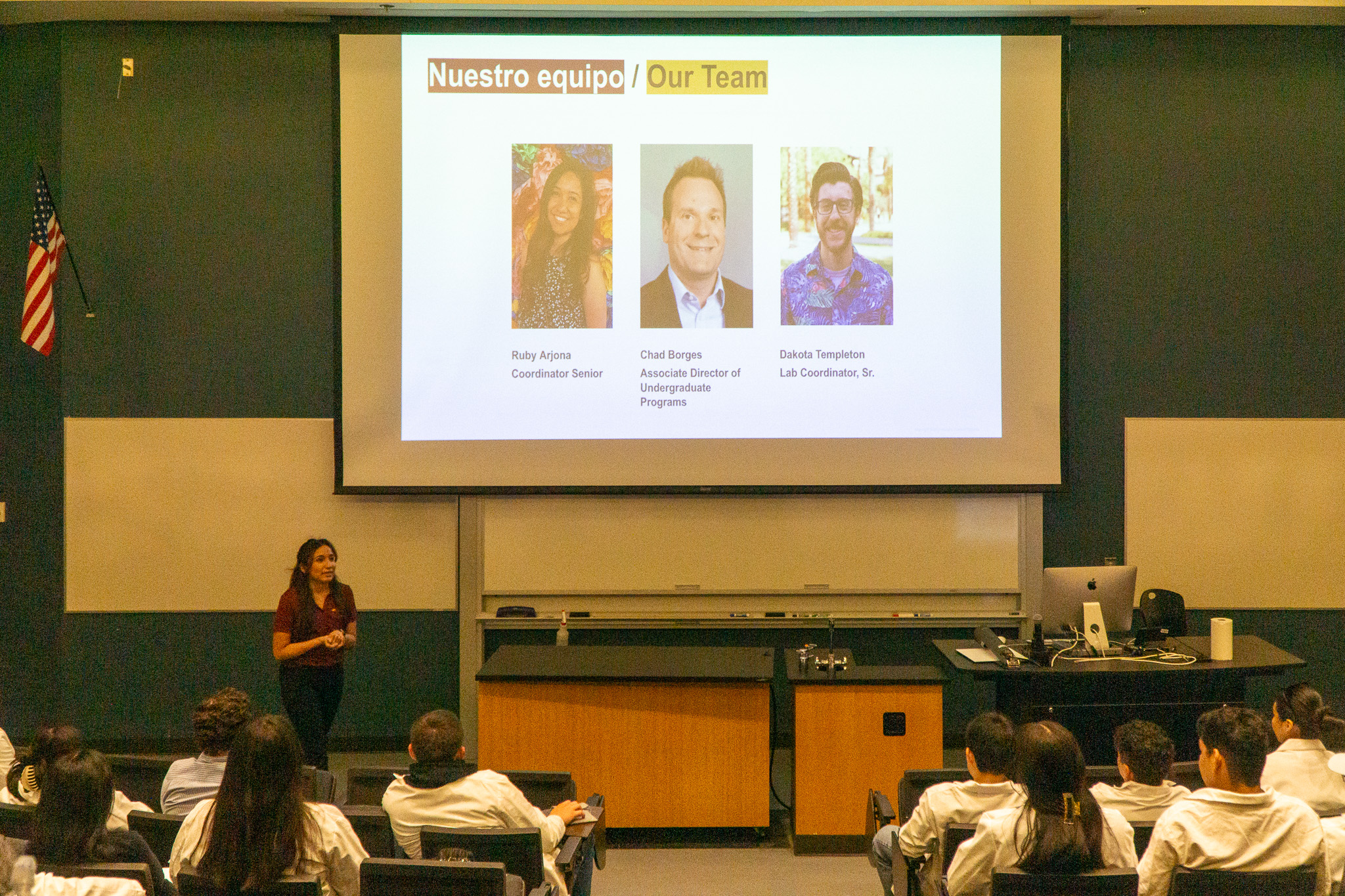Inspiring Future Scientists: ASU's Migratory Student Summer Academy Empowers Youth from Farming Families
SMS alumnus encourages students to pursue their STEM dreams: "Don't let anyone tell you it's too difficult."
On June 5, ASU’s School of Molecular Sciences welcomed 80 high school students from migrant seasonal farming families to Arizona State University to learn more about chemistry and biochemistry, and receive hands-on lab experience.
The labs were part of ASU’s Migratory Student Summer Academy, a summer camp that focuses on leadership and the instruction of core subjects of science, technology, engineering, and math (STEM) to promote success in higher education and beyond and hosted by ASU’s School of Transborder Studies.
During their time in SMS’s labs, students conducted experiments led by staff members Ruby Arjona, Dakota Templeton, and Associate Professor Chad Borges.
Students created batteries from everyday materials such as pennies, sandpaper, matboard, salt, vinegar, an LED, and a voltmeter, and prepared a pH indicator using red cabbage to learn about acids, bases, and pH levels.
ASU biochemistry alumnus Jesús Aguilar Diaz de Leon '14 and PhD analytical biochemistry alumnus '20 also met with the students to share his personal journey, encouraging them to persevere in their educational pursuits.
“Don't let anyone tell you you can’t pursue a career in science because it's too difficult,” said Diaz de Leon, who now is a research and development applications scientist at Biosensing Instrument Inc. “People think science is too complicated. If you are really passionate about pursuing science, you should do it, because it’s not.”
He emphasized the importance of passion and determination in overcoming personal obstacles.
“(People) told me I didn't have the skills, logic, or intelligence to be a biochemistry major, and I still went ahead and did it because I'm really passionate about it. Don't let others stop you from pursuing your passions.”
According to Pew Research Center data, Hispanic Americans are significantly underrepresented in STEM professions. Hispanic adults constitute 17% of the U.S. workforce but only 8% of those in STEM jobs. Increasing the number of Latino scientists is not only crucial for diversity in these fields but also serves as an inspiration for future generations.
“Seeing more Latinos in science is inspirational and rewarding. It's a way to give back to the community that has given me so much throughout my years at the School of Molecular Sciences,” Diaz de Leon said. “I hope to inspire all the students to pursue science and to show them that they too can succeed in these fields too.”
